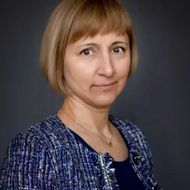- A
- A
- A
- ABC
- ABC
- ABC
- А
- А
- А
- А
- А
- HSE University
- Faculties
- Faculty of World Economy and International Affairs
- School of World Economy
- News
- New concept of regulation of mergers and acquisitions (M&A) in the banking industry
-
The School
17/1 Malaya Ordynka Str., Moscow, 119017
Phone: +7(495)772-95-90*22237
Email: wec@hse.ru
 The Multilateralism of the New Development Bank on the Sustainable Economic Growth in BRICS Nations and Beyond
The Multilateralism of the New Development Bank on the Sustainable Economic Growth in BRICS Nations and Beyond
Morozkina A., Grigoryev L. M., Gaspardo M. et al.
Emerald Group Publishing Ltd., 2025.
Frontiers in Political Science. 2025. Vol. 7.
Leonid Grigoryev, Morozkina A.
In bk.: The Multilateralism of the New Development Bank on the Sustainable Economic Growth in BRICS Nations and Beyond. Emerald Group Publishing Ltd., 2025. Ch. 6. P. 83-101.
Yakovlev A. A., Freinkman L., Ershova N. V. et al.
QoG Working Paper Series. 2023:19. University of Gothenburg, 2023. No. 19.

New concept of regulation of mergers and acquisitions (M&A) in the banking industry
The conference was organized by the British Association for Research in Banking and the Economy in cooperation with the University of Southampton and was held on October 12, 2016 in Winchester city, U.K. Dr Dzhagityan presented a principally new vision of how organizational transformation in the banking sector should be in agreement with the tasks of post-crisis recovery and financial stability. In fact, M&A of credit institutions remain one of the most vulnerable areas of banking activity due to banks’ higher interconnectedness with macro-level dynamics and because banking M&A are not regulated. At the same time, high level of abandoned and failed banking M&A deals (according to experts, they exceed 50% of all deals) is one of the sources of systemic risks and crisis developments. Despite the threats of “dominoes effect” and excessive risk-taking in the financial system, the international banking regulation reform (Basel III) has not yet addressed M&A processes with objective and independent oversight over M&A transactions.
It is therefore proposed that the remaining regulatory gap to be filled with a mechanism that comes in line with the post-crisis international regulatory order and to be based on a combination of traditional (microprudential) regulation and a quantitative assessment of risks inherent to banking M&A including instruments of macroprudential regulation to ensure accuracy, objectivity, and feasibility of the M&A deals. On the other hand, banking M&A regulation (embedded into micro- and macroprudential regulation) will aim at lowering the dependence of the M&A deals on economic cycles, which means minimization of procyclicality of banking consolidation movement thus synchronizing the M&A processes with countercyclical philosophy of banking regulation that has become a priority in ‘roadmapping’ financial stability in the post-crisis era. As such, the new, expanded regulatory framework will further advance the ability of today’s banking regulation for early identification of systemic risks and, accordingly, to minimize biases in understanding the approaches, opportunities, and perspectives of the M&A processes, while more potent risk-oriented regulatory tools will contribute to higher stress-resilience of the post-M&A banks and wider market positivism.
- About
- About
- Key Figures & Facts
- Sustainability at HSE University
- Faculties & Departments
- International Partnerships
- Faculty & Staff
- HSE Buildings
- HSE University for Persons with Disabilities
- Public Enquiries
- Studies
- Admissions
- Programme Catalogue
- Undergraduate
- Graduate
- Exchange Programmes
- Summer Schools
- Semester in Moscow
- Business Internship
- © HSE University 1993–2025 Contacts Copyright Privacy Policy Site Map
- Edit







